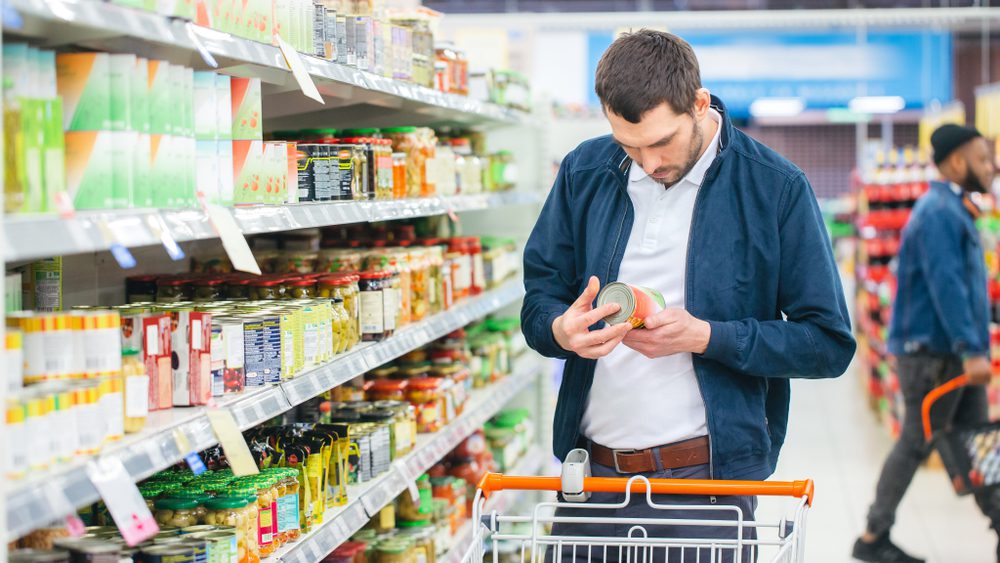
If you’ve watched the news or spent any time on social media, you’ve probably seen people in the United States and all over the world “panic buying” in response to the COVID-19 outbreak. It’s easy to act out of fear but it’s essential to remember that being prepared doesn’t mean stockpiling or hoarding. You need to prioritize your shopping list and minimize your trips to the store to avoid contact with others.
What to Buy
“It’s important to note that food production suppliers and companies are not reporting any shortage of food supplies across the country — so while you shop, it’s not necessary to hoard food or other grocery store items,” Tamika Sims, PhD, director of food technology communications at the International Food Information Council Foundation. This means you should focus on essential items.
-
Foods Rich in Vitamin C
Lisa Richards, a nutritionist and author of The Candida Diet, recommends buying foods that can strengthen your immunity.
“You should focus on foods rich in vitamin C, like strawberries, red bell peppers and citrus fruits,” she said. “It is important to remember that these foods can be found in frozen form and this is a perfectly acceptable way to consume them under the circumstances.”
-
Antioxidant-Rich Foods
Do you know what else can help you boost your immunity and overall health? Foods that contain antioxidants.
“Antioxidant-rich foods include blueberries, nuts, sweet potatoes, whole grains — like oatmeal — and beans,” she said. “Luckily these are very shelf-stable foods that can be consumed in a variety of ways during quarantine to keep your diet vibrant.”
-
Tea, Crackers and Soup
According to Lynell Ross, a certified health and wellness coach and founder of Zivadream, pantry items that are easy to digest and can ease stomach pain and discomfort, in case you get sick, are worth buying these days.
“I keep things in my pantry in case one of us gets a bad cold or the flu and we are too sick to get groceries,” she said. “Helpful things to have on hand are tea, crackers, canned or boxed soups — especially chicken soup — frozen fruits and vegetables, bottles of fruit juice that don’t need refrigeration, and Gatorade and ginger ale to replace electrolytes lost from fever or vomiting and to help with nausea.”
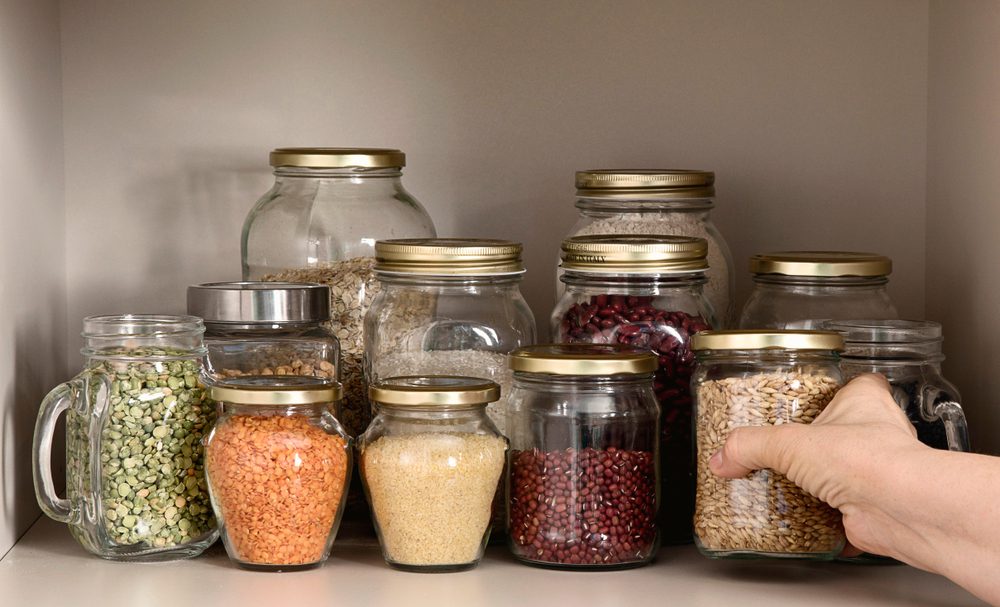
-
Foods That That Can Be Bought in Bulk
“There are many bulk foods that you can buy, which will help you stretch your meals while you need to be on a budget or want to stretch out the time between grocery runs,” Ross added. “Dried lentils, beans, rice, boxed pasta and canned sauces will last longer and are less expensive than premade items.”
-
Necessary Kitchen Appliances
Most of us are spending our entire time inside the house, preparing and consuming all of our meals at home. This means we absolutely need functional kitchen appliances.
“If your toaster or coffee maker breaks, get a new one,” Ross said. “There is no reason to hold off on buying things unless you are out of work or have suffered financial loss. Those that are fortunate enough to still have money coming in during the pandemic can help keep the economy going by purchasing things as usual.”
-
Medication
To avoid going outside as much as possible, it’s better to stock up on basic or essential medication to your treatment. “If you take prescription medication or are low on other medications, now is a good time to stock up and ensure you have everything you need,” said Stephanie Lane, a health and wellness expert, lifestyle coach and owner of SafeSpaceHub. “This also allows you to stay on top of any potential health conditions, so we don’t need to overwhelm the health system with minor health concerns during the pandemic.”
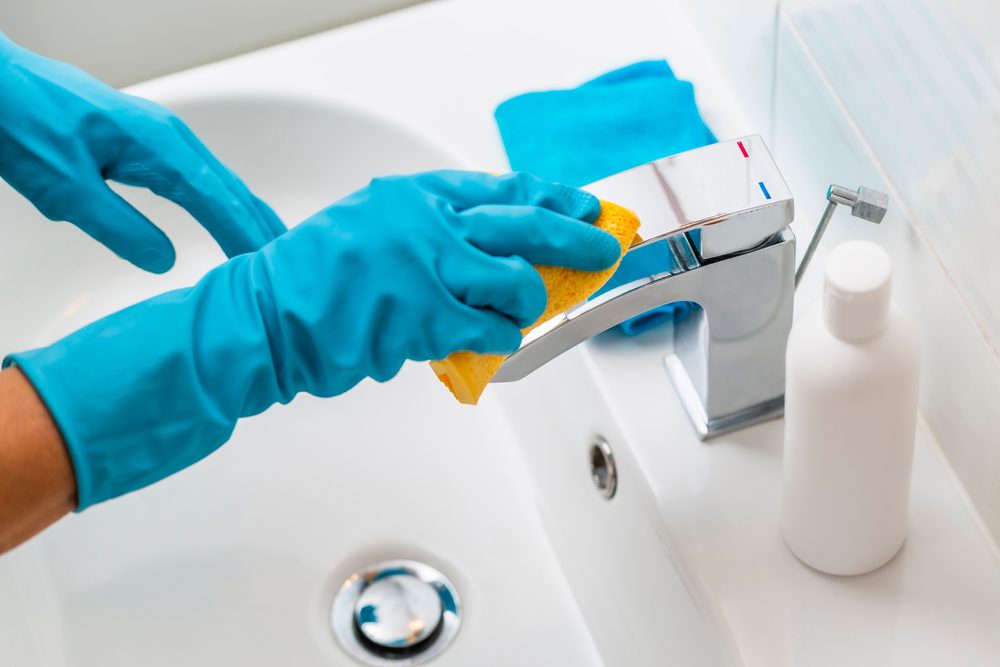
-
Household Cleaning Products and Toiletries
We said it before, we’ll say it again: immunity is very important. In fact, according to Alessandra Kessler, a certified holistic health coach and contributor to Healthy Body Healthy Mind, “the most important thing is your immunity to fight this pandemic. You should stay germ-free to be in the safe zone, so, you must keep the filthiest spots of your home clean. Your kitchen should be free of germs, so sanitize it regularly. Most importantly, you should remain germ-free by sanitizing your hands and keeping your body clean.”
This means you’ll need disinfectant wipes or spray to keep your house clean and sanitized, as well as hand and body soap to maintain a proper hygiene.
-
Water Purifier
Instead of going to the store all the time and wasting your money on bottled water, which by the way, takes up a lot of space that could be used for nonperishable goods, consider buying a water filter pitcher. You get to refill it with fresh water every time you are thirsty and need to hydrate.
-
Water Boiler
Sadly, going to your favorite coffee shop is no longer an option. Does this mean you won’t be able to enjoy your morning cup of coffee, should you want to? Well, you can solve this dilemma if you equip your kitchen with everything you need to create your favorite drinks at home, like a water boiler. You can heat water much faster than on the stove and it’s great for your morning coffee as well as for your afternoon tea.
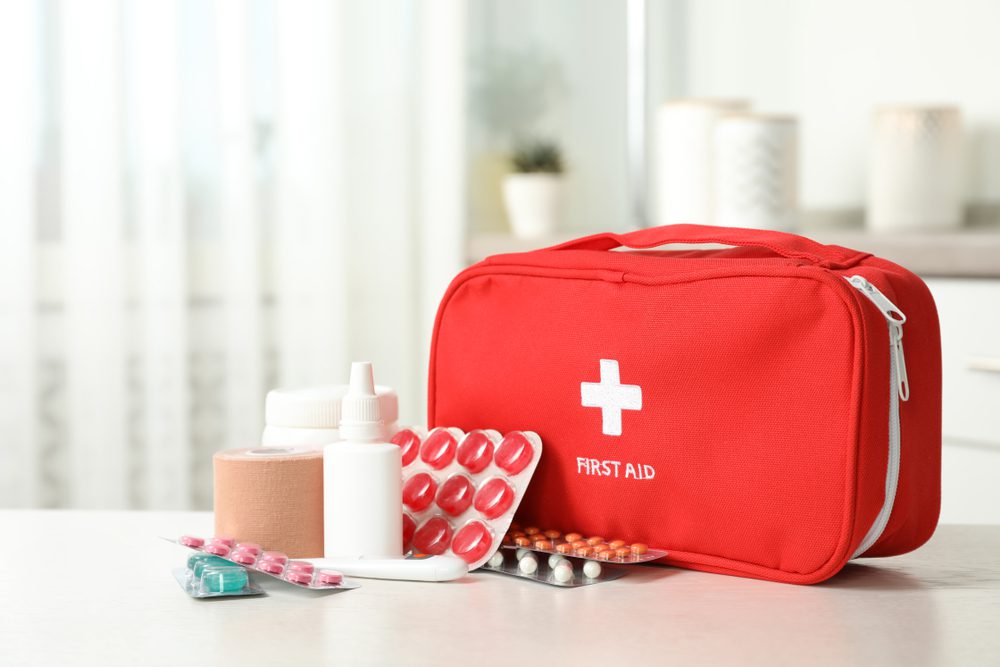
-
First Aid Kit
If you’ve got the medication part covered, don’t forget to include a first aid kit on your “to buy” list. Opt for one that includes a thermometer. This way you can take care of minor injuries at home instead of having to go to the doctor’s office.
-
Work From Home Supplies
Many people are now working from home, trying to create a productive and efficient working environment. If you’re one of them, consider purchasing a few items that will make your home office comfortable and pleasant, such as a desk chair, blue light glasses, a mouse and the like.
-
Pet Supplies
Don’t neglect your furry friends in these challenging times. It’s also in your best interest to avoid frequent trips to the pet store. This means you should stock up on food and any medications they need, and possibly wee-wee pads in case you’ll need to reduce your walks.
-
Family Entertainment
Spending time with your family can be a good thing but you can make it even better if you invest in a few things that will keep everyone in good spirits, such as board games, coloring books and puzzles. For inspiration, see 7 Best Family Games to Play the Time Away During a Pandemic.
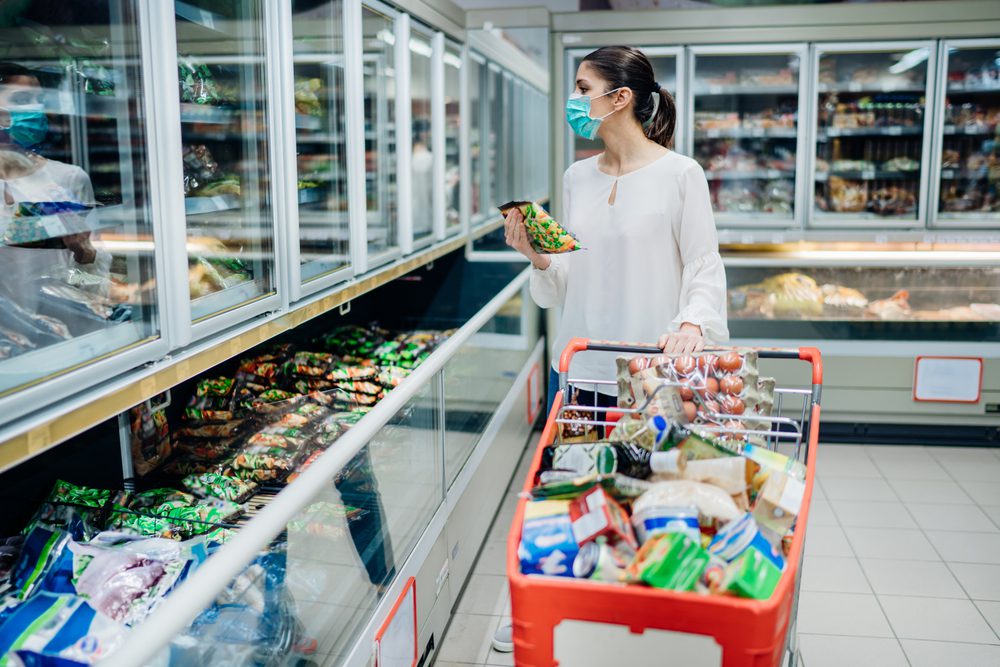
What to Skip
You might feel tempted to purchase some of these items, but according to experts, you should skip out on buying them from the store or online during the coronavirus pandemic.
-
Dehydrated Food
Apart from being expensive, dehydrated foods are also packed with salt, which is definitely not good for your health. Try foods and meals with a long shelf-life instead, such as these 13 Supermarket Foods That Will Last You for Years.
-
Too Much Toilet Paper
People have been emptying the toilet paper shelves, as if they were going to be quarantined for at least one year. There’s really no need for you to buy that much, especially since there’s no shortage of supply in supermarkets.
-
Alcohol Solutions That Contain Less Than 70% Alcohol
According to CDC recommendations, if you want to sanitize your home, you should stick to alcohol solutions that include at least 70% alcohol. Otherwise, it’s just like using plain water.
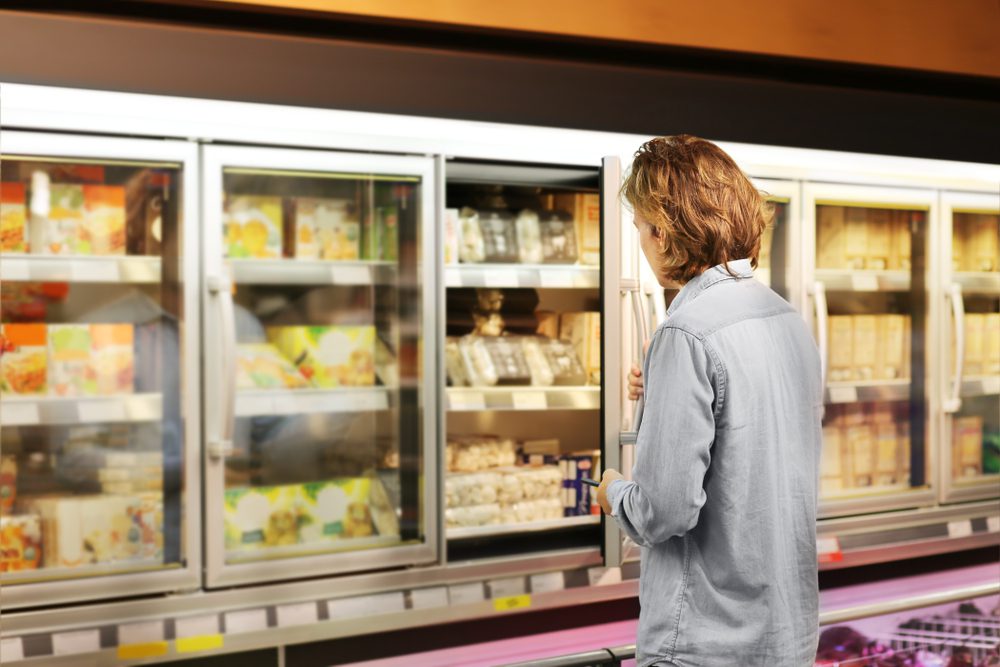
-
Food You Won’t Actually Eat
Just because you see things on supermarket shelves, does not mean you should just go ahead and buy them. Do you really need everything? “Buy things that you would really eat, not stuff that just because it was there you think, ‘Oh, gosh, maybe this would be good,’” Regina Phelps, a pandemic planner and crisis management expert, told CNBC Make It. “You just need to have the basics.”
-
Air Filters
Apart from being a bit expensive, there’s no real evidence suggesting that air filters can stop the spread of coronavirus. “Most air filters do not have that kind of micron specificity to really kill viruses and it’s not going to really help,” Phelps told CNBC.
-
Gloves
It can do you no harm to wear gloves but according to Timothy Brewer, an epidemiology professor at the University of California Los Angeles, “that’s not going to help you in any way.” More than that, “there’s no evidence” that gloves are beneficial because they can still get contaminated and give you a false sense of security that will make you forget you should not touch your face and mouth.
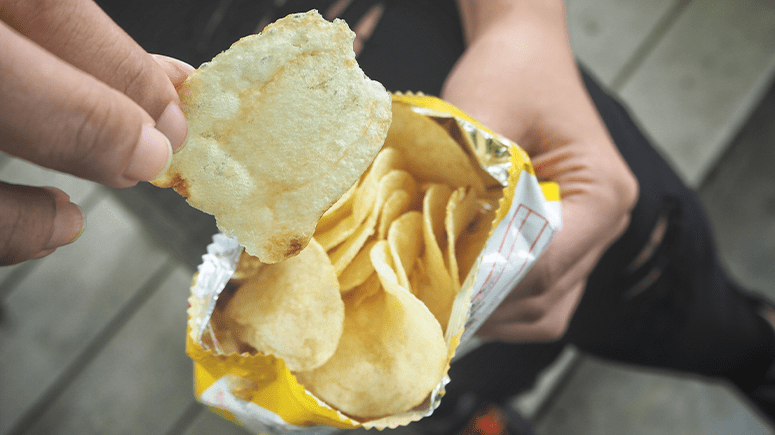
-
Unhealthy Snacks
According to Marion Nestle, professor of nutrition, food studies and public health, emerita at NYU Steinhardt, when you go grocery shopping, it’s better to stay away from the packaged foods with high salt and sugar content. “I think the issue of snacks is huge,” she said. “What do you do when you’re bored? You eat.”
In addition, not leaving the house or being physically active makes it harder for you to burn calories and more prone to gaining weight.
-
Foods With ‘WIC’ on the Label
If you see food items labeled with “WIC”, it means they are designed for participants in the WIC government nutritional assistance program.
“If an item has a WIC symbol beside the price, get something else. People who use WIC to feed their kids can’t switch to another brand or kind of food. If a store runs out of WIC-approved options, they will go home empty-handed,” says Suit Up Maine, a political action group, in one of their tweets.
-
Anything You Don’t Need
Not going out so often is the perfect opportunity for you to save some money that you would have otherwise spent on things you didn’t really need. Don’t give in to temptations, no matter how big the discount.
“Retailers are trying to minimize their losses by having frequent online sales, so ask yourself if you really need the item in your cart before checking out,” said Leslie Tayne, founder and head attorney at the debt solutions law firm Tayne Law Group. “If you find yourself browsing sales and purchasing items because they’re a ‘good deal,’ consider unsubscribing from the retailer’s list and minimize your time browsing due to boredom.”























